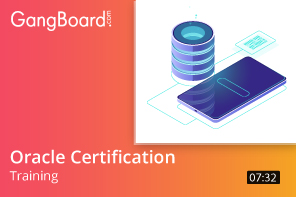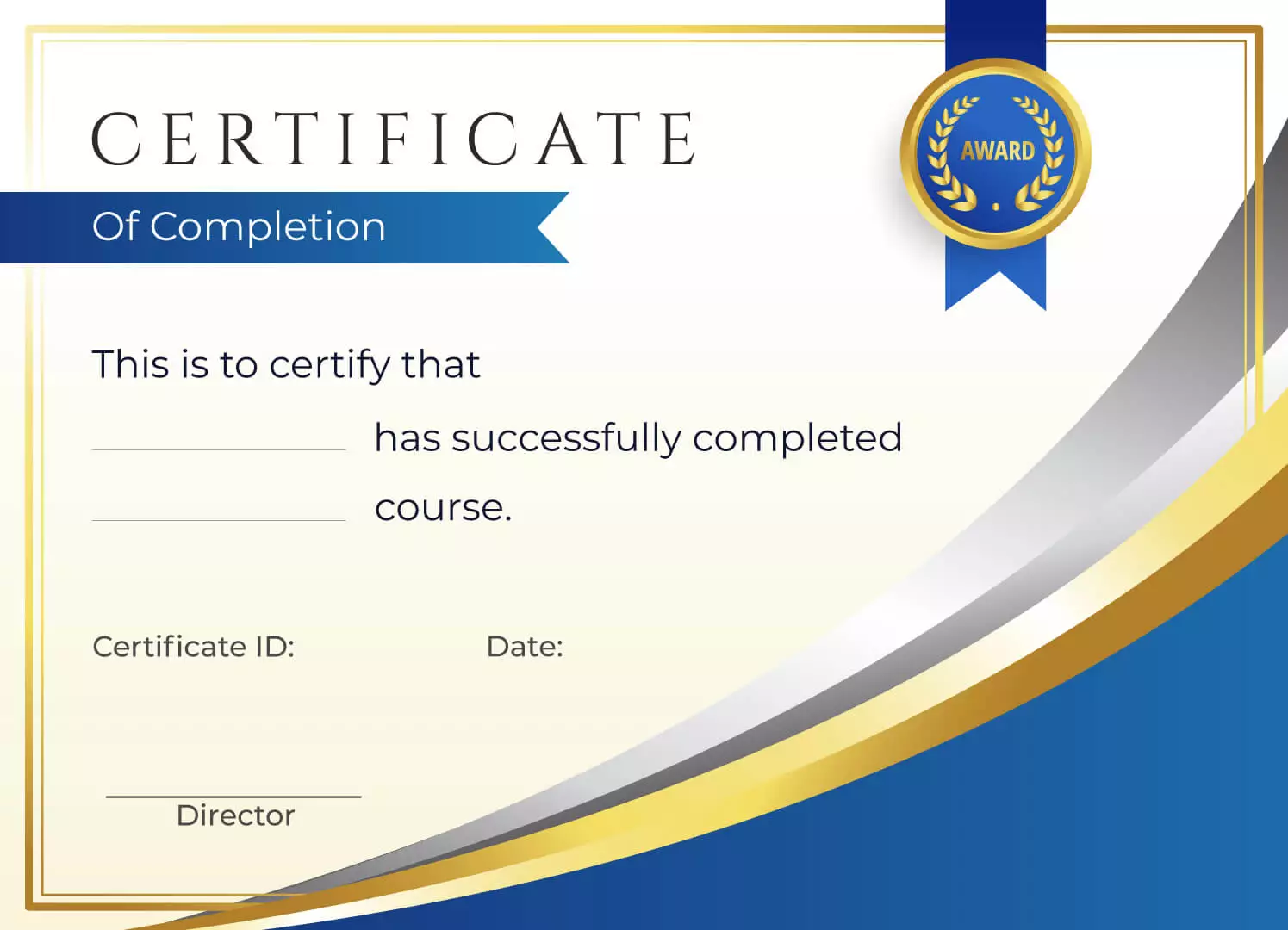About Oracle Certification Course Training
IT managers in database domains can best use this platform to reach a level in their careers.
What is oracle certification and levels of credentials?
This certification and training program have in it three major levels of credentials of oracle based on certain disciplines. These are maintained in database administration system as well as application development program. The three major levels of oracle certification program are
- Oracle certified associate system.
- Oracle certified professional system
- Oracle certified master system.
The other two specializations available are Oracle specialist system and Expert level system which are also major spaces of research and study in Oracle.
Apart from passing the exact Oracle certification examination, Oracle needs these certified candidates for most of its credentials so that they can at least attend certain instructor-led training and also offer proof of attendance. The mandate of Oracle’s education automatically rises the values of these certificates in the way through the assurance that students get to learn the required skills and talents in proper environment apart from just craving for the certification.
What are the benefits of have oracle certification for students?
Well, the world dominates in technology and it is required for every business to stand out from its competitors by delivering best of skilled work. Through oracle certifications, recruiters get in contact with skilled students whose motto is to deliver best of knowledge. Here are the benefits discussed vividly:
- The certification in Oracle training helps in establishing one’s competence in this subject widely in respect to handling database and business support systems and technologies.
- The ones who are certified with Oracle are the ones who get to have high salaried jobs in It and technology industries. You also get to have a chance to visit various countries as you travel for work.
- As you earn your oracle certification, it gives your bosses and superiors a chance to have a look at your resume which automatically advances your career in IT management.
- These certifications are the most sought-after medals that prove one’s credibility in the market dominated IT industries and companies in India and abroad.
- This certification course distinguishes you from your colleagues, co-workers, and competitors too.
- Oracle certification courses promise you increased security in jobs and helps you climb the stair of success and promotion very easily.
- Oracle certified candidates gain actual access to resources presents online which are websites for OCP members itself.
- Through Oracle, a candidate gets to have specialized up-gradation in training which allows Oracle certified IT experts to get updated early their certain credentials to the current generation of the technologies of Oracle.
What are the benefits of Oracle certification for businesses?
Businesses too have some benefits of oracle certification which are discussed vividly here:
- Rather than non-certified employees, those equipped in Oracle and have a certification for the same tend to work faster.
- Those companies and enterprises that employ Oracle certified DBAs have the benefit to experience higher system performances.
- Companies that recruit individuals who are mainly Oracle certified are shown to gain more staff retention than ever.
- Those businesses that employ Oracle certified professionals promise employee productivity the most and the work also tends to be done in proper ways.
- Oracle certified individuals promise consistent quality and proper standard of education and skills in the employees.All these reasons mentioned above have raised the demand of Oracle in companies and industries these days. Gone are the days when people used to rely on only degrees. These days, until and unless you have certifications, there is no progress in your career.
Where do students get information about certification details and course requirements?
These instructor-led live classes in Oracle suggest you go to the official Oracle certification page of Oracle website in Education. Here you get to have the details mentioned as in what Oracle is and why does one needs to have the certification done. It is recommended not to rely on other sources of information as Oracle’s official page will only be able to provide accurate information regarding classes, tests, and exams attached to this.
Where to study Oracle Certification courses?
There are many institutions boasting to deliver the certification to you. But before getting enrolled anywhere it is necessary to know all the details and features that the exact institute offers since Oracle is not at all an easy course of study. Always get enrolled in institutes that provide:
- Experienced professionals hailing from renowned institutes and universities in abroad or in our country.
- Training is done in a corporate style to help students get accustomed to the corporate world easily.
- Instructor-led live online classes are done which cater to a mass number of students at one go. Even if students miss out on online classes, they are provided with ample recordings of the class.
- Instructors belong from the renowned MNCs and thus help in 100% job assistance to students of institutes.
- Syllabuses are made by these experts and are based on company structures, rules and regulations so that students do not feel fish out of the water as they go to work with real-life scenarios.
- Courses are all placement oriented and are done so that students get placements in better places.
- There are projects and assignments to be done for every session and courses help in shaping the leadership qualities of the student and rise their inner confidence too.
- Students prepare their own materials and check it with experts for them to understand whether the student is lagging behind or not.
- A vast library having manuals and books on Oracle will help students in getting lots of references to prepare for notes.
- Being part of the Oracle team will help the student to know what type of questions do come and how to attempt them. best institutes have groups of these sorts where there are renowned experts from industries who are admins of these groups.
- Online classes help experts to interact with students from a number of countries and thus it helps them to understand the changing scenarios of this software in different parts of the world.
- At best institutes, timings are always flexible and students can log in at any time to get to know about speeches delivered.
- Fees is affordable too as most institutes know that studying Oracle certification is quite expensive and thus, they allow easy EMI systems too. This will help students in giving their payments much easier ways.
- Most institutes provide lab supports too which help in proving hands-on real-life experience to students.
- Best institutes prepare their students for interviews too as there are specified experts who excel in handing students who are ready to sit for interviews.
Which version of the said database should one certify to?
There are so many versions of Oracle present in a system and it is important for one to know exactly which version will be beneficial. It is always recommended to get certified against the latest versions since it covers certain reasons:
- If you get certified against the latest version, this will remain exact and relevant for the maximum period of time and you will not have to get certifications gain and again. Since the industry rules and standards are changing, there are times when you require to have upgradations too. Updating yourself in the latest version will allow you to be at the best.
- Most companies do not pay heed to the fact whether you are certified with the latest version since their main motto is to use the skills once you start to upgrade with the system.
- For quite a lot of companies in India and abroad, it is necessary for them to have the certification only and they actually do not care about the version number. So, you will be needed to be very sensitive in these cases.
Apparently, it is suggested by one to get the updated and latest version only since you will be at comfort and peace with it.
What you'll learn from this course?
- Introduction to SQL
- Describing the development environments for SQL
- Dropping a view
- Introduction to PL/SQL
- Benefits of PL/SQL
- List the Uses for Variables
- Describe Basic Block Syntax Guidelines
- Describe packages
Upcoming Batches for Oracle Certification Training
Our Oracle Certification Online Course gives students the opportunity to take classes on your flexible timings. Choose from a number of batches as per your convenience. If you got something urgent to do, reschedule your batch for a later time. The classes can be attended to at any place and at any time as per your choice.
Course Price at
Discount Price:₹ 17,000You Save: ₹ 3,000 (15% OFF)
Can’t find a batch you were looking for?
Enroll Now Pay Later Request a BatchCourse Syllabus of Oracle Certification Online Training
Introduction to SQL
- Listing the features of Oracle Database 11g
- Discussing the basic design, theoretical and physical aspects of a relational database
- Describing the development environments for SQL
- Describing Oracle SQL Developer, Describing the data set used by the course
- Retrieving Data Using the SQL SELECT Statement
- Listing the capabilities of SQL SELECT statements.
- Generating a report of data from the output of a basic SELECT statement
- Using arithmetic expressions and NULL values in the SELECT statement
- Using Column aliases
- Using concatenation operator, literal character strings, alternative quote operator, and the DISTINCT keyword
- Displaying the table structure using the DESCRIBE command
- Restricting and Sorting Data
- Writing queries with a WHERE clause to limit the output retrieved Using the comparison operators and logical operators
- Describing the rules of precedence for comparison and logical operators
- Using character string literals in the WHERE clause
- Writing queries with an ORDER BY clause to sort the output
- Sorting output in descending and ascending order
- Using the Substitution Variables
- Using Single-Row Functions to Customize Output
- Differentiating between single row and multiple row functions
- Manipulating strings using character functions
- Manipulating numbers with the ROUND, TRUNC and MOD functions
- Performing arithmetic with date data
- Manipulating dates with the date functions
- Using Conversion Functions and Conditional Expressions
- Describing implicit and explicit data type conversion
- Using the TO_CHAR, TO_NUMBER, and TO_DATE conversion functions
- Nesting multiple functions
- Applying the NVL, NULLIF, and COALESCE functions to data
- Using conditional IF THEN ELSE logic in a SELECT statement
- Reporting Aggregated Data Using the Group Functions
- Using the aggregation functions in SELECT statements to produce meaningful reports
- Using AVG, SUM, MIN, and MAX function
- Handling Null Values in a group function
- Creating queries that divide the data in groups by using the GROUP BY clause
- Creating queries that exclude groups of date by using the HAVING clause
- Displaying Data from Multiple Tables
- Writing SELECT statements to access data from more than one table
- Joining Tables Using SQL:1999 Syntax
- Viewing data that does not meet a join condition by using outer joins
- Joining a table by using a self join
- Creating Cross Joins
- Using Sub-queries to Solve Queries
- Using a Subquery to Solve a Problem
- Executing Single-Row Sub-queries
- Using Group Functions in a Sub-query
- Using Multiple-Row Subqueries
- Using the ANY and ALL Operator in Multiple-Row Sub-queries
- Using the SET Operators
- Describing the SET operators
- Using a SET operator to combine multiple queries into a single query
- Using UNION, UNION ALL, INTERSECT, and MINUS Operator
- Using the ORDER BY Clause in Set Operations
- Manipulating Data
- Adding New Rows to a Table Using the INSERT statement
- Changing Data in a Table Using the UPDATE Statement
- Using DELETE and TRUNCATE Statements
- Saving and discarding changes with the COMMIT and ROLLBACK statements
- Implementing Read Consistency
- Using the FOR UPDATE Clause
- Using DDL Statements to Create and Manage Tables
- Categorizing Database Objects
- Creating Tables using the CREATE TABLE Statement Describing the data types
- Describing Constraints
- Creating a table using a subquery
- Altering and Dropping a table
- Creating Other Schema Objects
- Creating, modifying, and retrieving data from a view
- Performing Data manipulation language (DML) operations on a view
- Dropping a view
- Creating, using, and modifying a sequence
- Creating and dropping indexes
- Creating and dropping synonyms
Introduction to PL/SQL
- What is PL/SQL
- PL/SQL Environment
- Benefits of PL/SQL
- Overview of the Types of PL/SQL blocks
- Create and Execute a Simple Anonymous Block
- Generate Output from a PL/SQL Block
- iSQL*Plus as PL/SQL Programming Environment
- Declaring PL/SQL Identifiers
- Identify the Different Types of Identifiers in a PL/SQL subprogram
- Use the Declarative Section to Define Identifier
- List the Uses for Variables
- Store Data in Variables
- Declare PL/SQL Variables
- Writing Executable Statements
- Describe Basic Block Syntax Guidelines
- Use Literals in PL/SQL
- Customize Identifier Assignments with SQL Functions
- Use Nested Blocks as Statements
- Reference an Identifier Value in a Nested Block
- Qualify an Identifier with a Label
- Use Operators in PL/SQL
- Use Proper PL/SQL Block Syntax and Guidelines
- Interacting with the Oracle Server
- Identify the SQL Statements You Can Use in PL/SQL
- Include SELECT Statements in PL/SQL
- Retrieve Data in PL/SQL with the SELECT Statement
- Avoid Errors by Using Naming Conventions When Using Retrieval and DML Statements
- Manipulate Data in the Server Using PL/SQL
- The SQL Cursor concept
- Use SQL Cursor Attributes to Obtain Feedback on DML
- Save and Discard Transactions
- Writing Control Structures
- Control PL/SQL Flow of Execution
- Conditional processing Using IF Statements
- Conditional Processing CASE Statements
- Handle Nulls to Avoid Common Mistakes
- Build Boolean Conditions with Logical Operators
- Use Iterative Control with Looping Statements
- Working with Composite Data Types
- Learn the Composite Data Types of PL/SQL Records and Tables
- Use PL/SQL Records to Hold Multiple Values of Different Types
- Inserting and Updating with PL/SQL Records
- Use INDEX BY Tables to Hold Multiple Values of the Same Data Type
- Using Explicit Cursors
- Cursor FOR Loops Using Sub-queries
- Increase the Flexibility of Cursors By Using Parameters
- Use the FOR UPDATE Clause to Lock Rows
- Use the WHERE CURRENT Clause to Reference the Current Row
- Use Explicit Cursors to Process Rows
- Explicit Cursor Attributes
- Cursors and Records
- Handling Exceptions
- Handling Exceptions with PL/SQL
- Predefined Exceptions
- Trapping Non-predefined Oracle Server Errors
- Functions that Return Information on Encountered Exceptions
- Trapping User-Defined Exceptions
- Propagate Exceptions
- Use The RAISE_APPLICATION_ERROR Procedure To Report Errors To Applications
- Creating Stored Procedures
- Describe the block structure for PL/SQL stored procedures
- Invoke a stored procedure/function from different tools
- Call a stored procedure with host variables from iSQL*Plus, Forms, Java, C, etc
- Invoke a stored procedure from an anonymous block or another stored procedure
- List the CREATE OR REPLACE PROCEDURE syntax
- Identify the development steps for creating a stored procedure
- Use the SHOW ERRORS command
- View source code in the USER_SOURCE dictionary view
- Creating Stored Functions
- Describe stored functions
- List the CREATE OR REPLACE FUNCTION syntax
- Identify the steps to create a stored function
- Execute a stored function
- Identify the advantages of using stored functions in SQL statements
- Identify the restrictions of calling functions from SQL statements
- Remove a function
- Creating Packages
- List the advantages of packages
- Describe packages
- Show the components of a package Diagram the visibility of constructs within a package
- Develop a package
- Create the package specification
- Declare public constructs
- Create the package body
- Using More Package Concepts
Are you Looking for Customized Syllabus
We are also providing customized syllabus to the students according to their needs and projects requirements for the cons
Request a CallProgram Features
IT Professionals as Trainers
Learning a technology with a professional who is well expertise in that solve 60% of your needs.
Fully Hands-on Training
We support any training should be more practical apart from theoretical classes. So, we always gives you hands-on training.
Affordable Fees
We are dead cheap in fees. We are having options to make the payment in instalments as well if needed.
10000+ old students to believe
We satisfied 10000+ students from the day we started GangBoard. Take a look of our old student’s video reviews and it says all.
Counselling by Experts
If you are in dilemma to choose a course, we are having experts in counselling team to help you with perfect projection of your career.
Own Course Materials
We have every course material to understand which is prepared by our trainers and we will share with you after session completes.
FAQ
Request more information
Our Advisor will get in touch with you in the next 24 Hours
Oracle Certification Exams & Certification
GangBoard Certification is Accredited by all major Global Companies around the world. We provide after completion of the theoretical and practical sessions to fresher’s as well as corporate trainees.
Our certification at GangBoard is accredited worldwide. It increases the value of your resume and you can attain leading job posts with the help of this certification in leading MNC’s of the world. The certification is only provided after successful completion of our training and practical based projects.
5000
Total Number of Reviews
4.57
Aggregate Review Score
97%
Course Completion Rate
At the End of our Oracle Certification Online Course, you will be assigned to work real-time projects. Once you completed the project with expected results we will verify and issue a globally recognized Oracle Certification Course Completion Certificate from GangBoard.
Oracle Certification Training Reviews
Average Ratings
Activity from April 2018
4.8
Course Reviews
Activity from Last Year
1596 ReviewsAverage Ratings
GangBoard Total Reviews in all Medium
21,596 ReviewsSofia
Fresher
I have done my Oracle Certification Training at GangBoard. The classes were mostly practical and my trainer helped me to work it out in real-time examples which will be very much useful for my career. Thank you GangBoard.
Rakshitha
Software Engineer
I have completed my Oracle Certification Training, Thanks to my trainer Mr. Ganesh Kumar, he taught me in a very good manner, best teacher. He gives very good teaching about Selenium Certification with Real-Time Example. Thanks to Ganesh Kumar sir and GangBoard.
Akash
Fresher
Hii friends. I did Oracle Certification Training in Gang Board. They can provide real-time examples. It was very helpful to me. Thanks to the GangBoard team.
Ajay
Fresher
have taken Oracle Certification Training from Karthik at GangBoard.Very good exposure to Oracle Certification concepts with hands-on. Completely satisfied with the training.
Manasa
Fresher
I joined the Oracle Certification Training in GangBoard with the knowledge of basic oracle. The coaching provided was excellent and the knowledge of the trainer is good. Training exercises are provided for better results from us.











 +1 201-949-7520
+1 201-949-7520 +91-9707 240 250
+91-9707 240 250